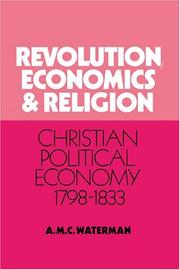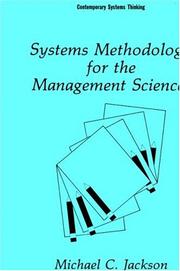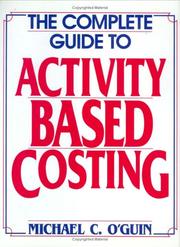| Listing 1 - 10 of 26 | << page >> |
Sort by
|

ISBN: 0521394473 0521030382 0511521502 0511832583 Year: 1991 Publisher: Cambridge New York Sydney Cambridge University Press
Abstract | Keywords | Export | Availability | Bookmark
 Loading...
Loading...Choose an application
- Reference Manager
- EndNote
- RefWorks (Direct export to RefWorks)
Malthus's Essay on Population was seen in 1798 as a complete refutation of Godwin and all 'Jacobin' ideology. It proved that a state of equality and justice for all was unfeasible; and it demonstrated the inevitability and beneficence of private property and political institutions. But its central theme, the dominance of scarcity in human affairs, presented the theological 'problem of evil' in novel and threatening form. For thirty-five years both the economics and the theology of the Essay were modified and refined: first by Paley, Sumner and Malthus himself, and later by Copleston, Whately and Chalmers. The result was 'Christian Political Economy': an ideological alliance of political economy and Christian theology, congenial to a new 'liberal-conservatism' in the early nineteenth century, which found middle ground between the ultra-tory defence of the ancien régime and a 'radical' repudiation of existing institutions. Professor Waterman analyses this story of the 'intellectual repulse of revolution', and describes the ideological alliance of political economy and Christian theology after 1798.
Malthus, Thomas Robert --- 32.001 --- Conservatism --- -Theodicy --- -Conservatism --- -Christian sociology --- -Christianity and politics --- -Economics --- -Revolutions --- -#SBIB:321H440 --- Insurrections --- Rebellions --- Revolts --- Revolutionary wars --- History --- Political science --- Political violence --- War --- Government, Resistance to --- Economic theory --- Political economy --- Social sciences --- Economic man --- Christianity --- Church and politics --- Politics and Christianity --- Politics and the church --- Christian social theory --- Social theory, Christian --- Sociology, Christian --- Sociology --- Conservativism --- Neo-conservatism --- New Right --- Right (Political science) --- Evil, Problem of (Theology) --- God --- Permissive will of God --- Problem of evil (Theology) --- Good and evil --- Politieke wetenschap --- -History of doctrines --- -Religious aspects --- -Christianity --- -History --- -Protestant churches --- -Congresses --- Religious aspects --- Westerse politieke en sociale theorieën vanaf de 19e eeuw: christelijke gedachte: opvattingen over economie en arbeid --- Political aspects --- Permissive will --- Will, Permissive --- Malthus, T. R. --- 32.001 Politieke wetenschap --- Christianity and politics --- Christian sociology --- Economics --- Revolutions --- Theodicy --- #SBIB:321H440 --- Protestant churches --- History of doctrines --- Great Britain --- Politics and government --- 1789-1820 --- 1800-1837 --- Sociology, Christian - Great Britain - History of doctrines. --- Christianity and politics - Protestant churches. --- Economics - Religious aspects - Christianity - History of doctrines. --- Malthus, T. R. (Thomas Robert), 1766-1834. An essay on the principle of population. --- Theodicy - History of doctrines. --- Conservatism - Great Britain - History. --- Conservatism - Religious aspects - Christianity - History of doctrines. --- Revolutions - Religious aspects - Christianity - History of doctrines. --- Great Britain - Politics and government - 1789-1820. --- Great Britain - Politics and government - 1800-1837. --- Social Sciences --- Political Science

ISBN: 0306438771 1489926348 1489926321 Year: 1991 Volume: vol *6 Publisher: New York London Plenum Press
Abstract | Keywords | Export | Availability | Bookmark
 Loading...
Loading...Choose an application
- Reference Manager
- EndNote
- RefWorks (Direct export to RefWorks)
Beheerswetenschap --- Management science --- Qantitative business analysis --- Science de la gestion --- Systeemanalyse --- System analysis --- Systèmes [Analyse des ] --- Management science. --- System analysis. --- 65.012.4 --- Network theory --- Systems analysis --- System theory --- Mathematical optimization --- Quantitative business analysis --- Management --- Problem solving --- Operations research --- Statistical decision --- 65.012.4 Management. Directorate. Technique and methods of management --- Management. Directorate. Technique and methods of management --- Network analysis --- Network science --- GESTION --- THEORIE DE SYSTEME
Book
ISBN: 0262132702 Year: 1991 Publisher: Cambridge (MA) ; London : M.I.T. Press,
Abstract | Keywords | Export | Availability | Bookmark
 Loading...
Loading...Choose an application
- Reference Manager
- EndNote
- RefWorks (Direct export to RefWorks)

ISBN: 0195066758 Year: 1991 Publisher: New York : Oxford University Press,
Abstract | Keywords | Export | Availability | Bookmark
 Loading...
Loading...Choose an application
- Reference Manager
- EndNote
- RefWorks (Direct export to RefWorks)
Brain --- Human evolution --- Laterality --- Cerveau --- Homme --- Latéralité --- Evolution --- Cognition. --- Biological Evolution. --- Functional Laterality. --- Neuropsychology. --- -Human evolution --- Psychophysiology --- Cerebral dominance --- Dual-brain psychology --- Evolution (Biology) --- Physical anthropology --- Evolutionary psychology --- Human beings --- Cerebrum --- Mind --- Central nervous system --- Head --- Neuropsychologies --- Neuropsychiatry --- Ambidexterity --- Behavioral Laterality --- Handedness --- Laterality of Motor Control --- Mirror Writing --- Laterality, Behavioral --- Laterality, Functional --- Mirror Writings --- Motor Control Laterality --- Writing, Mirror --- Writings, Mirror --- Split-Brain Procedure --- Evolution, Biological --- Sociobiology --- Cognitive Function --- Cognitions --- Cognitive Functions --- Function, Cognitive --- Functions, Cognitive --- Origin --- Human evolution. --- Laterality. --- Evolution. --- Latéralité --- Biological Evolution --- Cognition --- Functional Laterality --- Neuropsychology

ISBN: 1280539992 9786610539994 0198024525 1429407921 9781429407922 0195066758 9780195066753 0195083520 9780195083521 9781280539992 6610539995 9780198024521 Year: 1991 Publisher: New York ; Oxford : Oxford University Press,
Abstract | Keywords | Export | Availability | Bookmark
 Loading...
Loading...Choose an application
- Reference Manager
- EndNote
- RefWorks (Direct export to RefWorks)
Apes cannot talk; nor are they left or right handed. In this engaging account of language, evolution, and the brain, Michael Corballis shows why these two facts are intimately connected. Humans alone can learn and manipulate language because of a biological device in the left hemisphere of the brain (a specialization that causes handedness). In fascinating detail, he describes how this device emerged through the evolutionary pressures faced by our ancestors. He then shows how it works in a deft account of symbols, grammar, and vocabulary. Ranging across anthropology, biology, and linguistics, this book offers an engrossing look at what makes humans so unique.
Laterality. --- Brain --- Human evolution. --- Evolution (Biology) --- Physical anthropology --- Evolutionary psychology --- Human beings --- Psychophysiology --- Cerebral dominance --- Dual-brain psychology --- Evolution. --- Origin
Book
ISBN: 0585036179 9780585036175 0814477534 Year: 1991 Publisher: [Place of publication not identified] Amacom American Management Association
Abstract | Keywords | Export | Availability | Bookmark
 Loading...
Loading...Choose an application
- Reference Manager
- EndNote
- RefWorks (Direct export to RefWorks)
Business --- Commerce - General --- Commerce --- Business & Economics --- Dictionaries
Article
Year: 1991
Abstract | Keywords | Export | Availability | Bookmark
 Loading...
Loading...Choose an application
- Reference Manager
- EndNote
- RefWorks (Direct export to RefWorks)
Abnormal behaviour. --- Frustration. --- Housing. --- Management. --- Pig. --- Stress. --- Welfare.

ISBN: 0138533180 Year: 1991 Publisher: Englewood Cliffs, N.J. Prentice Hall
Abstract | Keywords | Export | Availability | Bookmark
 Loading...
Loading...Choose an application
- Reference Manager
- EndNote
- RefWorks (Direct export to RefWorks)
Book
Year: 1991 Publisher: London Centre for economic policy research
Abstract | Keywords | Export | Availability | Bookmark
 Loading...
Loading...Choose an application
- Reference Manager
- EndNote
- RefWorks (Direct export to RefWorks)

ISBN: 9780674636262 Year: 1991 Publisher: Cambridge (Mass.) : Harvard university press,
Abstract | Keywords | Export | Availability | Bookmark
 Loading...
Loading...Choose an application
- Reference Manager
- EndNote
- RefWorks (Direct export to RefWorks)
Public law. Constitutional law --- United States --- United States of America
| Listing 1 - 10 of 26 | << page >> |
Sort by
|

 Search
Search Feedback
Feedback About UniCat
About UniCat  Help
Help News
News